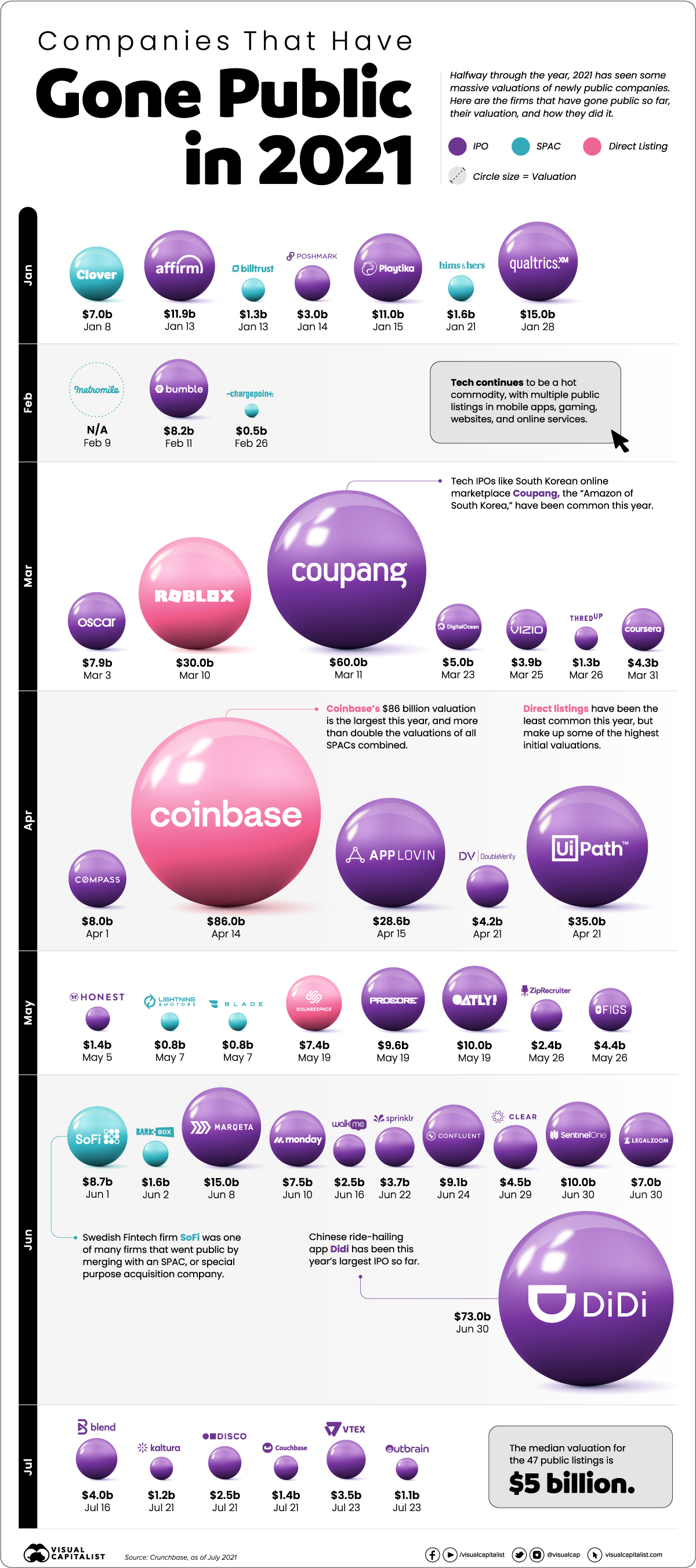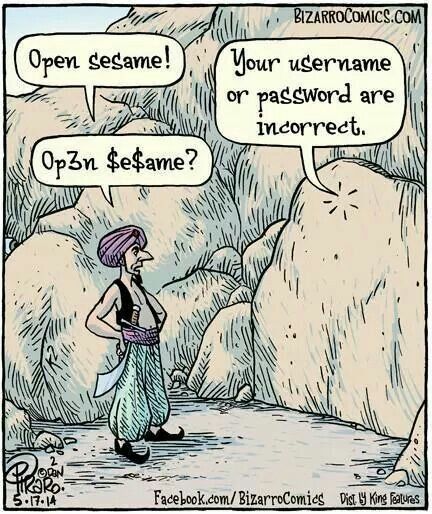Tech Terms
Generative Adversarial Networks (GAN) — a machine learning (ML) model in which two neural networks compete with each other to become more accurate in their predictions.
A few thoughts on Afghanistan
What’s New: The Taliban are entering Kabul. Afghanistan has fallen.
Why This Matters: After 20 years and hundreds of millions of dollars, American foreign policy in Afghanistan is in tatters.
Key Points:
-
On Sunday, Afghan President Ashraf Ghani fled Kabul, his government collapsed, and the Taliban began flowing into the capital city.
-
One day before, Ghani had issued a televised speech promising to “prevent further instability” and assuring Afghans that “remobilizing” the country’s defenses was a priority, according to the New York Times.
-
Some U.S. forces remain in the country and another 5,000 are heading to Afghanistan to assist in the American evacuation.
-
The United States, according to the New York Times, is negotiating with the Taliban, asking the Islamists not to attack the U.S. embassy in Kabul in exchange for the possibility of future foreign aid.
What I’m Thinking:
-
A point of editorial privilege. I know this isn’t a “tech” story, but I’ve got history in Afghanistan and these events are stirring up a lot of different emotions.

-
Some background. Not long after the 9/11 attacks, I was recruited by the U.S. government as an intelligence officer. Soon thereafter, I deployed to Afghanistan in support of the Global War on Terrorism (GWOT) — specifically hunting senior al-Qa’ida members in the region. It’s hard to communicate the shared sense of the nation during this time, but it was singularly focused and committed — we were going to “find, fix, and finish” the ones who attacked us and killed more than 3,000 of our citizens. I remained in counterterrorism for several years before my career moved in other directions. But my time in the GWOT — and in Afghanistan particularly — was formative. I’ve never missed it, but I’ve always been proud and glad to have done it.
-
What’s happening now makes me angry. I’m mad at Biden for executing the American withdrawal so poorly and making all of this so much worse than it needed to be. I’m mad at the other three administrations who have overseen the war in Afghanistan for believing there is any other way to achieve victory that does not involve completely destroying your enemy. In the very early days we had the opportunity to do this. Instead, we allowed an insurgency to metastasize and then fed it with half measures and crippled strategies. By the mid-2000s, it was almost certain that a stalemate and eventual U.S. retreat would be how things ended. I’m mad at the Afghan government for allowing incompetence, corruption, and indifference to stop them from securing their nation and people.
-
I’m also very, very sad. The Taliban are an evil Islamist group who have and will perpetrate some of the worst acts of violence and oppression you can imagine. They bury women up to their shoulders and then recruit children to stone them to death for the crime of learning to read. They drag men into the middle of crowded stadiums and beat them for the sin of trimming their beards. They forbid kids from going to school and even banned the flying of kites when they were in power the first time. Over the last 20 years, they have blown up, shot, stabbed, poisoned, beat, and otherwise killed thousands of innocent Afghans — who were almost exclusively their co-religionists. And now, there are already reports of the Taliban sending letters to Christians in Kabul, saying, “We know who you are and we’re coming for you.” Over the coming weeks and months we are going to see tragedy upon tragedy in Afghanistan and it is going to be awful.
-
Finally, this feels like the end of something. My professional life has been defined by the attacks on 9/11 and everything that followed. The American withdrawal from Afghanistan feels like the end of that era. The unfolding events there will feature prominently in news coverage over the next couple of months and, perhaps, we’ll even see U.S. troops deployed there again (who knows). But over the course of time the closing of this chapter in American foreign policy will enable us to more earnestly turn to great power competition with China and others — as I believe we should. But even though I am convinced that such a strategic pivot is necessary, it still feels terrible.
It’s time to stop spreading the “election hack” lie
What’s New: Last week, MyPillow CEO Mike Lindell held a three day “cyber symposium” where he was going to reportedly prove that the Chinese hacked the U.S. election, causing Biden to be elected.
Why This Matters: As of three months ago, 66% of Republicans said Biden’s win was not legitimate and 53% said they believe Trump is still the rightful president.
Key Points:
-
Last week’s symposium was held in South Dakota and featured Lindell and a number of others who have been helping him in his investigations.
-
Several industry recognized cybersecurity and election security experts were also in attendance and were eager to sift through the promised data of Beijing’s election manipulation.
-
Unfortunately, this material was never provided. Instead, attendees were shown a series of screen shots of random data out of context and told the real stuff would be delivered at a later date.
-
When pressed about the lack of details, the MyPillow boss said the following:
“I’ve been told that they can go out there and corrupt it and make fake stuff and put fake news out … so I don’t need [the press] to go out and doctor the evidence and put out ‘Mike Lindell a conspiracy theorist!’”
What I’m Thinking:
-
Claiming the election was hacked is a serious accusation. Our entire political system is predicated on the notion that our elected officials hold their offices because they have been legitimately placed there by the people of the United States. To say that one of these officials — especially the President — was actually installed by a foreign government is to directly call this fundamental presupposition of representative democracy into question. Any American has a right to make such a claim, but it is incumbent upon them to then prove this claim — or at the very least mount some type of compelling argument that it might be the case.
-
Mike Lindell and others claiming the election was hacked have not proven their case. After inviting media and cybersecurity leaders to his event and promising $5 million to anyone who could disprove his assertions, Lindell failed to even explain his theory, let alone prove it. He then proceeded to move the goal post and to justify his not sharing his “100% proof” by claiming doing so would result in him being mocked by the media.
-
The truth is, the 2020 election was secure and its results have been verified. At the heart of the hacking claims is the idea that votes were switched by voting machines to disadvantage Trump and to ensure a Biden victory. But in every case where this has been asserted to have cost Trump the election, multiple independent forensic audits have shown that the votes were counted correctly as they were cast. In truth, using the same cybersecurity standards we have used for every previous election where digital voting was allowed, the 2020 presidential election was the most secure and validated election in our history.
-
It’s time to stop spreading election hack lies. Even if you believe Biden is illegitimate, Mike Lindell and others pushing the hack narrative have failed to make their case and propagating these theories only serves to further undermine public confidence in our democratic institutions. Repeating the hack lie hurts the nation; it will not help to save it.
Turnabout is fair play (but still annoying)
What’s New: Microsoft is formally protesting the NSA’s award of a $10 billion cloud contract to Amazon Web Services (AWS), according to Ars Technica.
Why This Matters: Readers will remember that Amazon recently successfully upended Microsoft’s multi-billion dollar cloud contract with the U.S. military and now Redmond1 wants revenge.
Key Points:
-
American intelligence agencies are in the midst of a large-scale, multi-year effort to modernize their computing and storage capabilities.
-
For years, the NSA, CIA, and DoD have been using GovCloud which is provided by AWS, but now the IC is looking to further expand compute capacity.
-
The new contract proposal — called WildandStormy — is part of a hybrid computing program that blends traditional cloud services with hardware-as-a-service (HaaS) products that are needed for some of the agency’s specialized mission requirements.
“There are some of the [network] pieces that are a little more exotic … there are pieces of this that are a little too hard to re-factor and move into a [commercial] cloud service,” said NSA Chief Information Officer Greg Smithberger.
-
While the NSA has named AWS as the winner of the WildandStormy contract, Microsoft is protesting, saying they would have won the contract if the agency had properly evaluated the bids.
-
GAO is expected to adjudicate the contract award by October.
What I’m Thinking:
-
Well, this was unexpected (and by “unexpected” I mean completely expected). The cloud computing business is huge business and only getting bigger. The dominant platforms like AWS, Microsoft, and even Google are all vying for billion dollar government contracts and it looks like blood feuds are starting to develop. While it can sometimes be entertaining to watch the elephants fight, the unfortunate consequence of pugilist pachyderms is that our intelligence capabilities and military readiness are at risk of getting trampled. The GAO, Congress, and the White House need to chart a path forward on cloud acquisition that ensures the nation gets the services and capabilities it needs on a timeline that meets our requirements.
Let’s Get Visual

Nerd Humor

Quick Clicks
That’s it for this Monday Brief. Thanks for reading, and if you think someone else would like this newsletter, please share it with your friends and followers. Have a great week!
Microsoft is headquartered in Redmond, Washington.






Please note that we at The Dispatch hold ourselves, our work, and our commenters to a higher standard than other places on the internet. We welcome comments that foster genuine debate or discussion—including comments critical of us or our work—but responses that include ad hominem attacks on fellow Dispatch members or are intended to stoke fear and anger may be moderated.
With your membership, you only have the ability to comment on The Morning Dispatch articles. Consider upgrading to join the conversation everywhere.